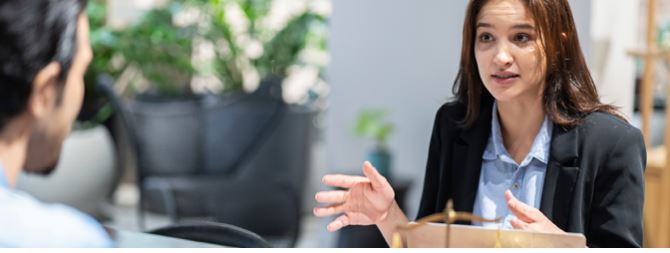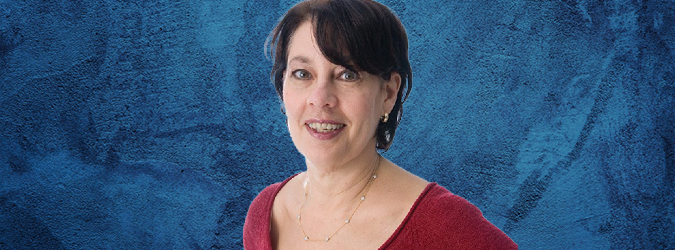Are a Judge’s Social Media Posts Ethical?
12.6.2021
To the Forum:
A few months ago I appeared before a judge in a matter that has become highly contentious over the years with a lot of bad blood between counsel and the parties. As a result, over the course of the last year we have appeared before the judge numerous times to argue various discovery and sanction motions. Although we are in the process of settling the case and have not appeared before the judge in a few months, the case is still active. However, the particular judge whom the case is before is well-known for her strong online social media presence. The judge posts weekly videos on YouTube opining on courtroom etiquette and the dos and don’ts of practice. In doing so, she uses real-life anecdotes of attorneys and cases before her and changes any personal identifying information in order to preserve the privacy of the parties and attorneys involved.
Yesterday, I was extremely displeased to hear from my colleagues that the judge had recently posted a video discussing the importance of civility between counsel and apparently used facts and circumstances of my case as an example. Despite her attempt at disguising the identity of the parties and counsel, it was abundantly clear to me and my colleagues that she was referencing our case. To make matters worse, it seemed as though she indicated that my client had the weaker position in the matter, which I fear, if seen by opposing counsel, may hurt our chances of settlement. Are the judge’s social media posts ethical? Is there anything that I can do to salvage my reputation and settlement at this point?
Sincerely,
Mads Tagram
Dear Mads Tagram,
It is no secret that social media has become a ubiquitous part of contemporary interaction and communication in our profession. In today’s digital age, there has been a substantial increase by professionals – including judges and judicial officers – in the use of social media as a way of creating an online presence. Several of our prior Forums have discussed at length the various sections of the Rules of Professional Conduct (the RPC) that apply when lawyers use social media.[1] As noted in one prior Forum, the ethical implications of judges using social media are governed by 22 N.Y.C.R.R. Part 100 (the “Rules”), and many of those Rules have to be referenced as we answer your question.[2]
In 2008, the New York State Advisory Committee on Judicial Ethics (the “Committee”) noted that if a judge otherwise complies with the Rules governing judicial conduct, he or she may join or make use of an internet-based social network but should exercise an appropriate degree of discretion in doing so.[3] A decade later, the Committee opined that “the question is not whether a judge may participate in blog posts, podcasts, social media or the like, but how he/she does so.”[4]
While there is no rule explicitly prohibiting judges from using social media platforms such as YouTube, important ethical considerations arise when judges do so, and each scenario should be evaluated with respect to its unique circumstances. As a general warning, the American Bar Association cautioned that judges who use electronic social media should “assume that comments posted [on such forums] will not remain within the circle of the judge’s connections.”[5]
In that regard, Rule 100.2 explicitly reminds us that judges must always strive to avoid impropriety and the appearance of impropriety. The Rules further provide that in order to avoid impropriety – or, perhaps, better said – the appearance of impropriety, judges should refrain from posting anything to their social media accounts that could be viewed as an offer of legal advice or comments on a matter before their court.[6] Applying this rule, the judge in your case should not have used social media as a forum for comments on your matter which was still pending and, most certainly, should not have suggested that your client had the weaker position.
Disguising names of the parties in an apparent attempt to preserve confidentiality does not save the day. Lawsuits and legal proceedings are generally a matter of public record and any individual with access to the internet is likely able to figure out which matter the judge is referencing in her YouTube video. And, while 22 N.Y.C.R.R. § 100.3(B)(8) does not, to be sure, prohibit judges from making public statements in the course of their official duties or from explaining for public information the procedures of the court, posting a video to the judge’s personal YouTube page is certainly not part of a judge’s official duties.
The judge’s video may also contaminate the jury pool as it also potentially creates a risk that it may influence potential jurors in the event your settlement negotiations fail and your case goes to trial. As noted in comment [3.13][3B(7)] to Rule 100.3:
“[a] judge should encourage and seek to facilitate settlement, but the judge should not take any action or make any comment that might reasonably be interpreted by any party or its counsel as (a) coercion to settle, or (b) impairing the party’s right to have the controversy resolved by the court in a fair and impartial manner in the event settlement negotiations are unsuccessful. In matters that will be tried without a jury, a judge who seeks to facilitate settlement should exercise extreme care to avoid prejudging or giving the appearance of prejudging the case.”
In addition, the judge’s use of her YouTube page to make an example out of your case appears to violate Rule 100.3(C)(3), which provides, in pertinent part, that a judge shall avoid nepotism and favoritism. Certainly, making a statement that could in any way indicate that one party has a stronger position in a case that is still pending before the court can be seen as the judge exercising favoritism. If you are able to demonstrate that the judge exhibited favoritism in her posting of the YouTube video, it may be appropriate for the judge to recuse herself from the proceeding pursuant to 22 N.Y.C.R.R. § 100.3(E)(1)(a)(i). However, as a practical aside, you should now strongly consider whether the judge in your case actually demonstrated partiality or favoritism sufficient to warrant her disqualification. As attorneys we are required to advance the goals of our clients. Because you have indicated that your case has been before this judge for “years” and may potentially settle, we believe that you must now analyze whether the judge’s appearance of partiality is significant enough warrant a disqualification motion. Whether such a motion should be made must be should be weighed against the risk of blowing up the potential settlement and/or substantially delaying the matter by bringing in a new judge who would need to get up to speed on the issues.
Another question is whether the judge is receiving any form of compensation for posting her YouTube videos. If the judge were to receive compensation, it could place her in further violation of Rule 100.4(D), which specifically provides that a judge shall not engage in financial and business dealings that may reasonable be perceived to exploit the judge’s judicial position.[7] In today’s digital era, individuals with a strong online presence are often paid by companies to endorse their products. If this is the case, the judge’s impartiality may be further called into question. For example, if the judge were to receive compensation from YouTube to post her videos, and she later has a case before her involving YouTube, her impartiality may be called into question because others may reasonably assume that YouTube is in a special position to influence the judge in violation of the applicable code of judicial conduct.
In conclusion, while we are sure that the judge meant well in endeavoring to use your case as an example of the importance of civility among lawyers, the problem here is that the use of a YouTube video commenting on the behavior of the lawyers in your case may not have been the best way of addressing the issue. And, as a general matter, while a YouTube channel featuring a judge discussing dos and don’ts of the practice of law can certainly be a benefit to litigants and clients alike, the line between an appropriate post and a violation of the Rules is so thin we recommend that judges steer clear to avoid any appearance of partiality
Sincerely,
The Forum by
Vincent J. Syracuse
([email protected]) and
Alyssa C. Goldrich
Tannenbaum Helpern Syracuse & Hirschtritt LLP
QUESTION FOR THE NEXT FORUM:
I am a junior associate and was tasked with defending a defendant witness deposition on a typical personal injury case. Plaintiff’s counsel made good points and got some pretty damaging (depending on your perspective) testimony. The client’s general counsel was present and seemed a bit concerned and anxious. During a break, the GC and I counseled the witness on how to rehabilitate his or her testimony giving them some points to make during the remainder of the deposition.
Once we went back on the record opposing counsel questioned the witness on any communications they had with me and the GC during the break. I strenuously objected to any details about the conversation because it was clearly privileged. Opposing counsel disagreed and marked the transcript for a ruling and was visibly frustrated by what they said was a clear “breach of deposition protocol.”
I debriefed the deposition with my senior partner who told me that I had nothing to worry about, and I was right to counsel the witness on how to rehabilitate their testimony. According to the senior partner I had done well and that is “the way it has always been done.”
I am now confused, the plaintiff’s attorney seemed so confident in their position, but the senior partner has been practicing for so long. Was I right, was I wrong?
Sincerely,
Waverly E. Squire
[1] See Vincent J. Syracuse, Carl F. Regelmann and Alexandra Kamenetsky Shea, Attorney Professionalism Forum, N.Y. St. B. J. January 2018, Vol. 90, No. 1; see also Vincent J. Syracuse, Maryann C. Stallone and Hannah Furst, Attorney Professionalism Forum, N.Y. St. B. J. February 2016, Vol. 88, No. 2.
[2] See Vincent J. Syracuse, Carl F. Regelmann and Maxwell W. Palmer, Attorney Professionalism Forum, N.Y. St. B. J. April 2019, Vol. 91, No. 3.
[3] See N.Y. Adv. Comm. on Jud. Ethics, Op. 08-176 (2008).
[4] See N.Y. Adv. Comm. on Jud. Ethics, Op. 18-126 (2018).
[5] See American Bar Association, Formal Op. 462 (2013).
[6] See 22 N.Y.C.R.R. §§ 100.3(b)(8), 100.4(G).
[7] See 22 N.Y.C.R.R. § 100.4(D).






